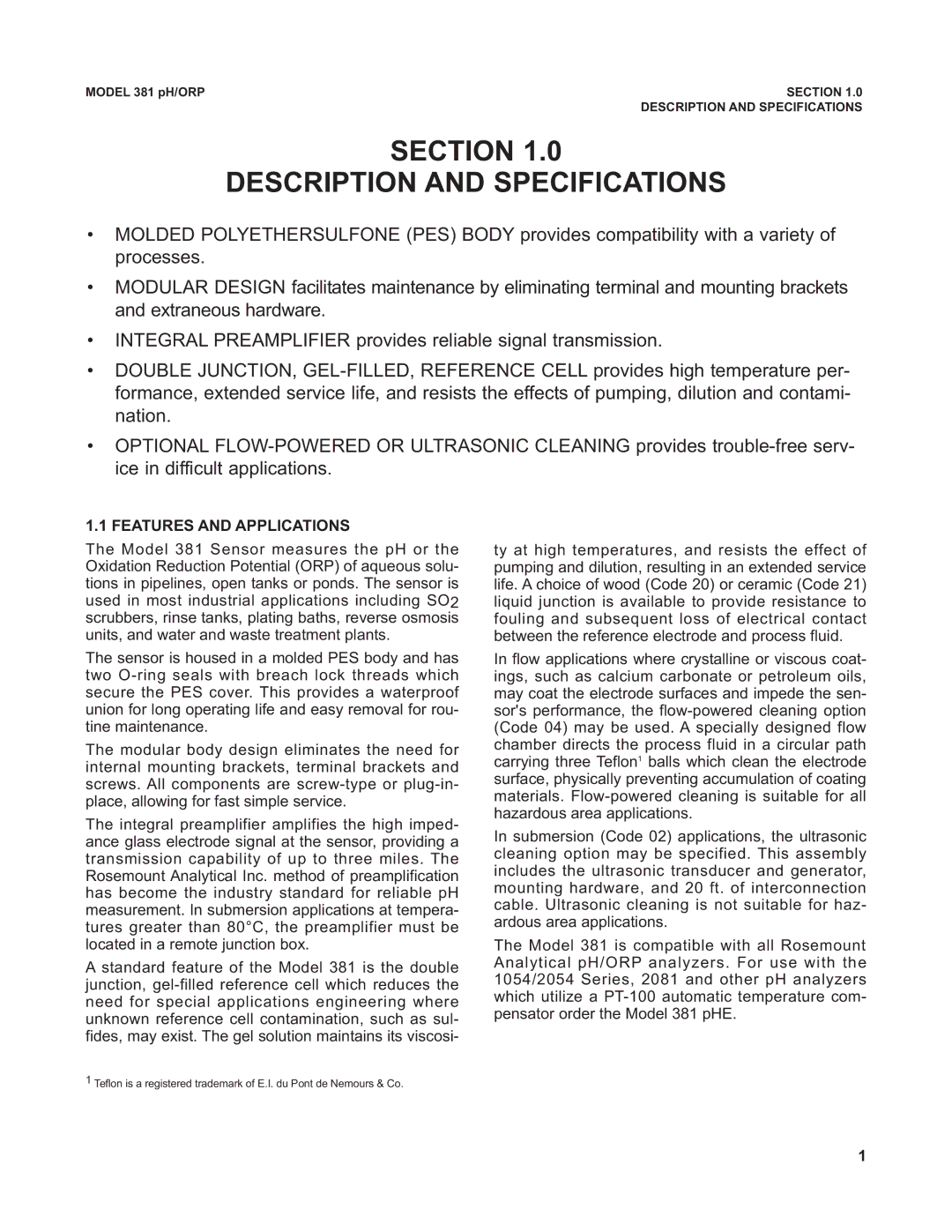MODEL 381 pH/ORP | SECTION 1.0 |
| DESCRIPTION AND SPECIFICATIONS |
SECTION 1.0
DESCRIPTION AND SPECIFICATIONS
•MOLDED POLYETHERSULFONE (PES) BODY provides compatibility with a variety of processes.
•MODULAR DESIGN facilitates maintenance by eliminating terminal and mounting brackets and extraneous hardware.
•INTEGRAL PREAMPLIFIER provides reliable signal transmission.
•DOUBLE JUNCTION,
•OPTIONAL
1.1 FEATURES AND APPLICATIONS
The Model 381 Sensor measures the pH or the Oxidation Reduction Potential (ORP) of aqueous solu- tions in pipelines, open tanks or ponds. The sensor is used in most industrial applications including SO2 scrubbers, rinse tanks, plating baths, reverse osmosis units, and water and waste treatment plants.
The sensor is housed in a molded PES body and has two
The modular body design eliminates the need for internal mounting brackets, terminal brackets and screws. All components are
The integral preamplifier amplifies the high imped- ance glass electrode signal at the sensor, providing a transmission capability of up to three miles. The Rosemount Analytical Inc. method of preamplification has become the industry standard for reliable pH measurement. In submersion applications at tempera- tures greater than 80°C, the preamplifier must be located in a remote junction box.
A standard feature of the Model 381 is the double junction,
ty at high temperatures, and resists the effect of pumping and dilution, resulting in an extended service life. A choice of wood (Code 20) or ceramic (Code 21) liquid junction is available to provide resistance to fouling and subsequent loss of electrical contact between the reference electrode and process fluid.
In flow applications where crystalline or viscous coat- ings, such as calcium carbonate or petroleum oils, may coat the electrode surfaces and impede the sen- sor's performance, the
In submersion (Code 02) applications, the ultrasonic cleaning option may be specified. This assembly includes the ultrasonic transducer and generator, mounting hardware, and 20 ft. of interconnection cable. Ultrasonic cleaning is not suitable for haz- ardous area applications.
The Model 381 is compatible with all Rosemount Analytical pH/ORP analyzers. For use with the 1054/2054 Series, 2081 and other pH analyzers which utilize a
1 Teflon is a registered trademark of E.I. du Pont de Nemours & Co.
1
